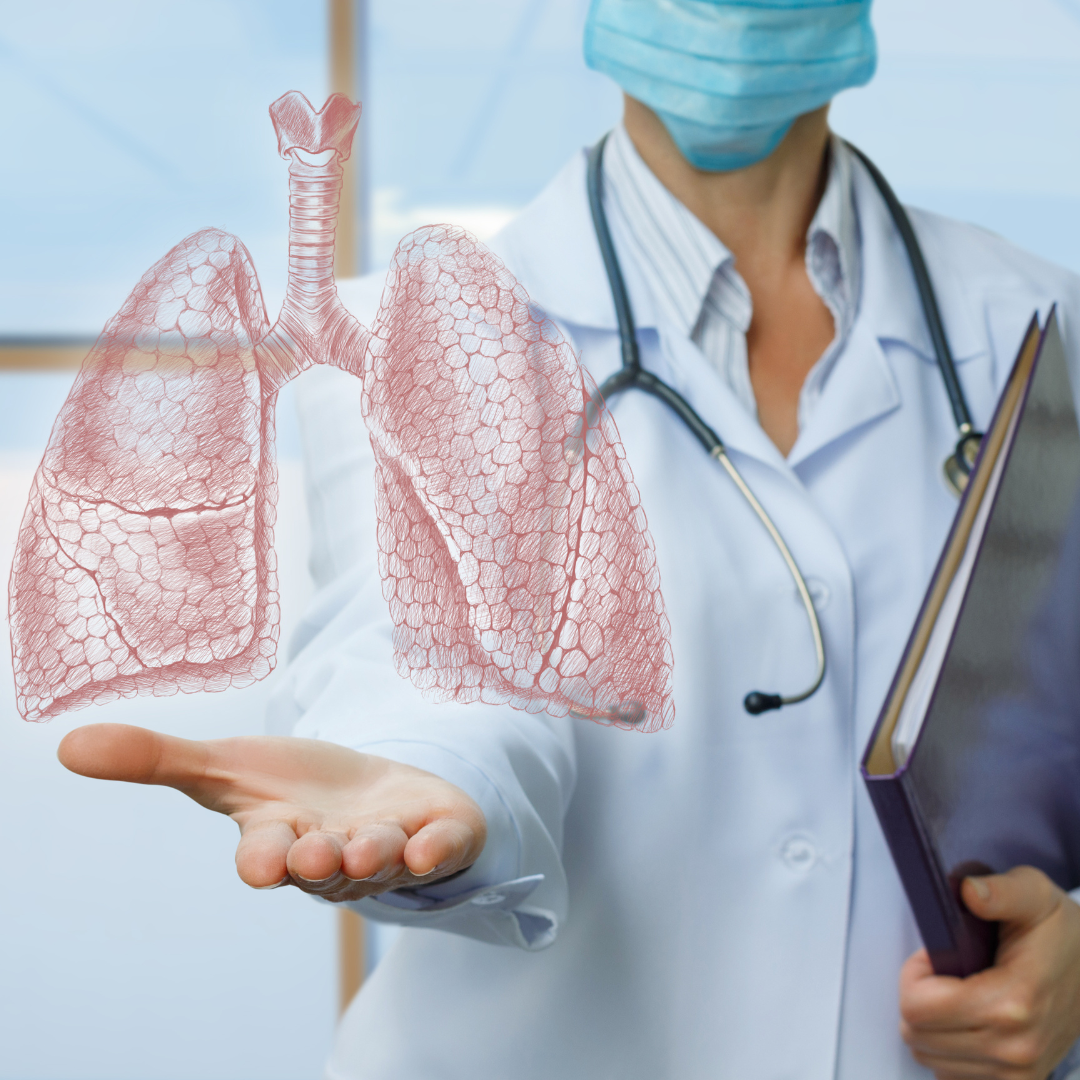 Lung cancer is the leading cause of cancer deaths worldwide. According to the National Cancer Institute, smoking is the most common cause of lung cancer, with exposure to radon, a colorless, odorless gas, being the second leading cause of lung cancer in the United States. To help prevent a potential lung cancer diagnosis at an advanced stage when it’s harder to treat, it is important to determine if you are eligible for a potential life-saving screening.
Lung cancer is the leading cause of cancer deaths worldwide. According to the National Cancer Institute, smoking is the most common cause of lung cancer, with exposure to radon, a colorless, odorless gas, being the second leading cause of lung cancer in the United States. To help prevent a potential lung cancer diagnosis at an advanced stage when it’s harder to treat, it is important to determine if you are eligible for a potential life-saving screening.
Why Should I Get a Lung Cancer Screening?
Screenings are used to look for cancers before any signs or symptoms occur. Lung screenings are important because they can help find lung cancer while it is in the early stages and easiest to treat.
At MemorialCare Todd Cancer Institute at Long Beach Medical Center, our Lung Program care team of physician experts and a lung nurse navigator help guide you through the process of screening, evaluation and treatment. Our hospital-based lung programs are unique in that our nurse navigator will coordinate all aspects of your care with your primary care physician to help get you authorized for the screening quickly and will be your form of support and encouragement.
Earlier this year, the Centers for Medicare & Medicaid Services (CMS) updated the eligibility criteria for a lung cancer screening. Now to be eligible for a lung cancer screening, patients must meet the below criteria:
- For Medicare reimbursement, patients must be age 50 – 77
- For most private insurances, patients must be age of 50 – 80
- Either a current smoker or have quit smoking within the last 15 years
- Have a tobacco smoking history of at least 20 “pack years” (an average of one pack per day for 20 years)
- Don’t have signs or symptoms of lung cancer (asymptomatic)
What are the Symptoms of Lung Cancer?
Even though the lung screenings are usually encouraged before symptoms, if you have any of the below symptoms, I encourage you to reach out to your primary physician now or our Lung Screening Program to ask about lung screening eligibility. Symptoms that could indicate later stages of lung cancer include:
- A cough that does not go away or worsens
- Coughing up blood or rust-colored spit
- Chest pain that is often worse with deep breathing, coughing or laughing
- Hoarseness
- Loss of appetite
- Unexplained weight loss
- Shortness of breath
- Feeling tired or weak
- Infections that don’t go away or keep coming back, such as bronchitis or pneumonia
- New onset of wheezing
If you have any of these symptoms, talk with your doctor immediately to evaluate what you should do next.
Is it too Late to Prevent Lung Cancer?
It’s never too late to prevent lung cancer. Three easy ways to help prevent lung cancer are:
- Stop smoking
- Eat a healthy diet
- Exercise regularly
Of course, avoiding smoking altogether is the best way, but it’s never too late to quit. Choosing to quit can significantly reduce your chances of developing lung cancer. But, by quitting smoking you can also reverse any damage that might already be there.
Increasing the amount of fruits and vegetables in your diet can also help reduce the risk of lung cancer. According to a 2019 study in the journal Nutrients, a daily increase of 100 grams of fresh fruit reduced the risk of lung cancer in smokers by 5%, and a daily increase of 100 grams of vegetables reduced it by 3%.
Participating in routine physical activity can help prevent lung cancer. Studies have shown routine exercise can help improve chances of survival. It is important to be active and see your doctor regularly to maintain optimal health.
For more information about lung cancer screening, how to prevent lung cancer and treatment, please visit memorialcare.org/lungprogram.